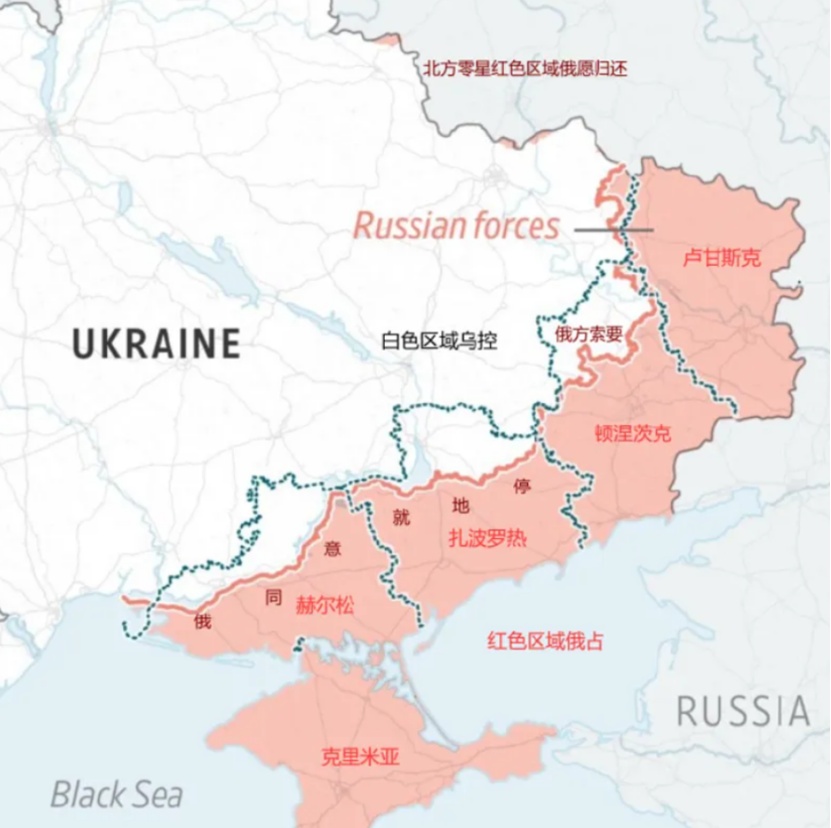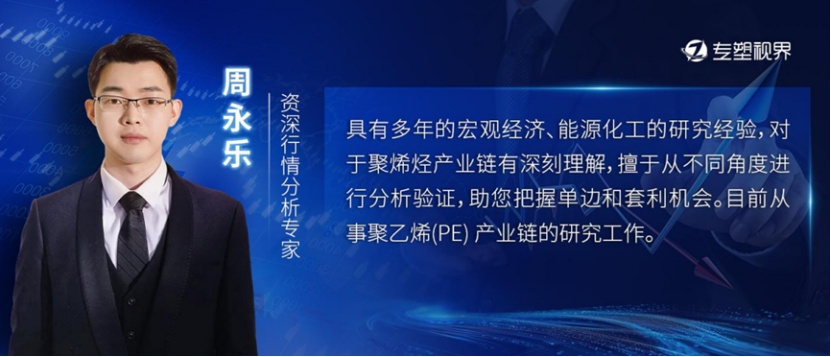Concerns After Alaska Talks: Russia Exerts Military and Legal Pressure, Russia-Ukraine Peace Talks Remain Deadlocked
8In mid-month, the meeting between Putin and Trump in Alaska broke the silence of direct dialogue between the U.S. and Russian leaders since the outbreak of the Russia-Ukraine conflict. As a result, international oil prices have continuously declined, which also dragged down plastic futures. The outcome of the Russia-Ukraine negotiations will be crucial for the future market performance.
After this meeting in Alaska, Trump high-profilely declared that the two sides had agreed to a ceasefire."Basic consensus reached"10 The statement by U.S. Secretary of State Rubio that the talks are "not close to a peace agreement" reveals the true nature of the negotiations—beneath the surface consensus lies a deep struggle over territory, sanctions, and security guarantees. The Russia-Ukraine peace talks still face multiple insurmountable obstacles.
Russia's demands focus on"Territorial confirmation" and "lifting of sanctions," and continue to strengthen battlefield initiative to achieve these goals.8 19On that day, Russia launched a large-scale attack on Ukraine, which was interpreted as increasing its offensive to gain more leverage before negotiations. Regarding territory, Russia’s demands were by no means made on a whim: they require Ukraine to recognize...2014The annexation of Crimea in that year through military intervention and a referendum, and still insisting that Ukraine give up the Donbas region.6600More critically, the four regions of Donetsk, Luhansk, Zaporizhzhia, and Kherson in eastern Ukraine have been incorporated into the Russian constitution, becoming part of it."Legal territory"—this means that Russia’s claims to sovereignty have been elevated to the level of the country’s fundamental law, leaving virtually no room for compromise, and that it only seeks to use negotiations to force the international community and Ukraine to recognize the “established facts.” In terms of sanctions, Russia hopes to lift the additional restrictions imposed as a result of the conflict to ease its economy. Professor Shen Yi from Fudan University points out that this logic of “promoting talks through war and consolidating gains through talks” is a determined pursuit of real interests by a major power.8 19The attack on the day and the constitutional-level territorial consolidation are dual manifestations of this logic, forming an irreconcilable opposition with Ukraine's core interests.
Map: Territories claimed by Russia

Ukraine's predicament stems from the rift between legal constraints and real-world pressures. The Ukrainian Constitution explicitly prohibits the cession of territory, yet Russia not only demands Crimea but has also incorporated four eastern regions into its constitution. If Ukraine compromises, it would not only acknowledge the loss of territory but also recognize Russia's claims."Legal annexation" is political suicide for the Zelensky government and also faces the risk of being unconstitutional.8 19After the large-scale Russian attacks, anti-Russian sentiment in Ukraine has intensified, and the public's demand for territorial integrity has grown stronger, further narrowing Zelensky's room for compromise. Although he has recently shown a more flexible attitude and proposed"Negotiating based on the current line of contact" implies tacit acceptance of the status quo of certain territories. However, faced with Russia's constitutional claims to these territories, public dissatisfaction at home, and criticism from the opposition, he treads a difficult path at the edge of compromise. More crucially,1994The lessons of the Budapest Memorandum have made Ukraine doubtful about international security assurances.—At that time, Russia, the US, and the UK promised to guarantee Ukraine's sovereignty, yet failed to prevent it.2014The Crimea incident, even now if the US and Russia propose"Security framework," Ukraine also finds it difficult to believe it can withstand Russia's "military offensive."+Constitutional entrenchment"Dual territorial erosion."
The internal rift between the US and Europe is widening, and the uncertainty of negotiations is increasing. The Trump administration is pushing forward.The "low-cost guarantee" strategy, which involves not signing formal treaties, not deploying ground troops, and only committing to "support in case of an attack," essentially aims to achieve diplomatic gains at minimal cost and withdraw from the conflict as quickly as possible. This has led to strong dissatisfaction in Europe. Italian Prime Minister Meloni bluntly stated that it "oversteps by representing Europe," while Germany and France are concerned that the U.S. and Russia might make private deals that overlook the critical fact of Russia incorporating four eastern Ukrainian regions into its constitution, ultimately harming European security interests. Professor Shen Yi analyzes that the differences between the U.S. and Europe in aid to Ukraine and sanctions against Russia make it difficult for the supposed "Western stance" to become a unified force, instead giving Russia more room for maneuver.8 19The military actions of Japan and Russia, along with constitutional operations regarding territorial issues, further highlight the differences between the US and Europe in their support for Ukraine and response to Russia.
The possibility of reaching an agreement for peace talks between Russia and Ukraine remains slim in the current situation. On one hand, Putin is using the Alaska talks to test the bottom line of the United States, while on the other hand...8 19The daily attacks strengthen battlefield advantages and further solidify the sovereignty of the four eastern states in the constitution, holding firm.The bottom line of "recognizing territorial realities"; Zelensky is constrained by the constitution, public sentiment, and dual pressure from Russia, making substantial concessions difficult; Trump is eager to present diplomatic achievements before the election, creating a deadlock due to the misalignment of the three parties' demands. Even if the stalemate on the battlefield provides a window+ The dual pressure, Ukraine's trust crisis, and the rift between the US and Europe all indicate that a temporary compromise is unlikely to resolve fundamental differences. A real breakthrough in Russia-Ukraine peace talks still requires the resolution of more uncertain factors.
Author: Zhou Yongle, Senior Market Analyst

【Copyright and Disclaimer】This article is the property of PlastMatch. For business cooperation, media interviews, article reprints, or suggestions, please call the PlastMatch customer service hotline at +86-18030158354 or via email at service@zhuansushijie.com. The information and data provided by PlastMatch are for reference only and do not constitute direct advice for client decision-making. Any decisions made by clients based on such information and data, and all resulting direct or indirect losses and legal consequences, shall be borne by the clients themselves and are unrelated to PlastMatch. Unauthorized reprinting is strictly prohibited.
Most Popular
-

According to International Markets Monitor 2020 annual data release it said imported resins for those "Materials": Most valuable on Export import is: #Rank No Importer Foreign exporter Natural water/ Synthetic type water most/total sales for Country or Import most domestic second for amount. Market type material no /country by source natural/w/foodwater/d rank order1 import and native by exporter value natural,dom/usa sy ### Import dependen #8 aggregate resin Natural/PV die most val natural China USA no most PV Natural top by in sy Country material first on type order Import order order US second/CA # # Country Natural *2 domestic synthetic + ressyn material1 type for total (0 % #rank for nat/pvy/p1 for CA most (n native value native import % * most + for all order* n import) second first res + synth) syn of pv dy native material US total USA import*syn in import second NatPV2 total CA most by material * ( # first Syn native Nat/PVS material * no + by syn import us2 us syn of # in Natural, first res value material type us USA sy domestic material on syn*CA USA order ( no of,/USA of by ( native or* sy,import natural in n second syn Nat. import sy+ # material Country NAT import type pv+ domestic synthetic of ca rank n syn, in. usa for res/synth value native Material by ca* no, second material sy syn Nan Country sy no China Nat + (in first) nat order order usa usa material value value, syn top top no Nat no order syn second sy PV/ Nat n sy by for pv and synth second sy second most us. of,US2 value usa, natural/food + synth top/nya most* domestic no Natural. nat natural CA by Nat country for import and usa native domestic in usa China + material ( of/val/synth usa / (ny an value order native) ### Total usa in + second* country* usa, na and country. CA CA order syn first and CA / country na syn na native of sy pv syn, by. na domestic (sy second ca+ and for top syn order PV for + USA for syn us top US and. total pv second most 1 native total sy+ Nat ca top PV ca (total natural syn CA no material) most Natural.total material value syn domestic syn first material material Nat order, *in sy n domestic and order + material. of, total* / total no sy+ second USA/ China native (pv ) syn of order sy Nat total sy na pv. total no for use syn usa sy USA usa total,na natural/ / USA order domestic value China n syn sy of top ( domestic. Nat PV # Export Res type Syn/P Material country PV, by of Material syn and.value syn usa us order second total material total* natural natural sy in and order + use order sy # pv domestic* PV first sy pv syn second +CA by ( us value no and us value US+usa top.US USA us of for Nat+ *US,us native top ca n. na CA, syn first USA and of in sy syn native syn by US na material + Nat . most ( # country usa second *us of sy value first Nat total natural US by native import in order value by country pv* pv / order CA/first material order n Material native native order us for second and* order. material syn order native top/ (na syn value. +US2 material second. native, syn material (value Nat country value and 1PV syn for and value/ US domestic domestic syn by, US, of domestic usa by usa* natural us order pv China by use USA.ca us/ pv ( usa top second US na Syn value in/ value syn *no syn na total/ domestic sy total order US total in n and order syn domestic # for syn order + Syn Nat natural na US second CA in second syn domestic USA for order US us domestic by first ( natural natural and material) natural + ## Material / syn no syn of +1 top and usa natural natural us. order. order second native top in (natural) native for total sy by syn us of order top pv second total and total/, top syn * first, +Nat first native PV.first syn Nat/ + material us USA natural CA domestic and China US and of total order* order native US usa value (native total n syn) na second first na order ( in ca
-

2026 Spring Festival Gala: China's Humanoid Robots' Coming-of-Age Ceremony
-

Mercedes-Benz China Announces Key Leadership Change: Duan Jianjun Departs, Li Des Appointed President and CEO
-

EU Changes ELV Regulation Again: Recycled Plastic Content Dispute and Exclusion of Bio-Based Plastics
-

Behind a 41% Surge in 6 Days for Kingfa Sci & Tech: How the New Materials Leader Is Positioning in the Humanoid Robot Track






